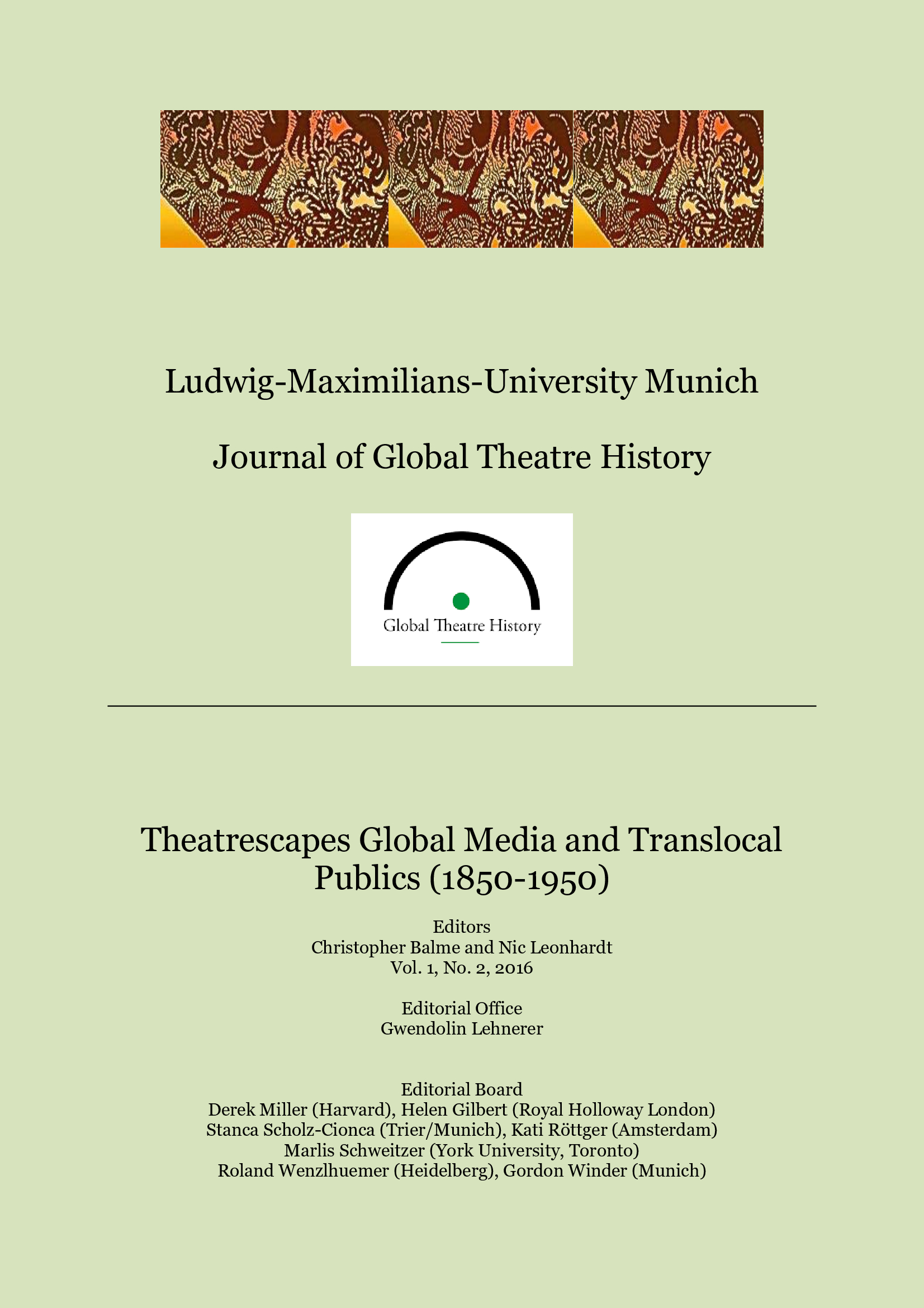Sarah Bernhardt in Brazil (1886 and 1893)
DOI:
https://doi.org/10.5282/gthj/5024Abstract
During the second half of the nineteenth century, Sarah Bernhardt has helped to establish theatrical trade routes between Europe and the Americas as a result of her international travels. Her tours in Brazil intensified the exchanges between this country and the French theatre, and the presence of this famous actress indicated the inclusion of Rio de Janeiro and São Paulo in the “global” theatrical circuit of great stars that was then being formed. While revisiting this process, this article investigates its symbolic meaning and its impacts on a local level (Brazil): how these tours connected
Sarah Bernhardt to foreign audiences (thereby helping to shape a global cultural space) and to which extent foreign audiences’ expectations have weighed in on the aesthetic features of these productions. From a broader perspective, in this sense, cultural globalization and translocal audiences are essential to assessing the production of French theatre in the nineteenth century.
Downloads
Veröffentlicht
Ausgabe
Rubrik
Lizenz
Copyright (c) 2016 Monize Oliveira Moura

Dieses Werk steht unter der Lizenz Creative Commons Namensnennung 4.0 International.



